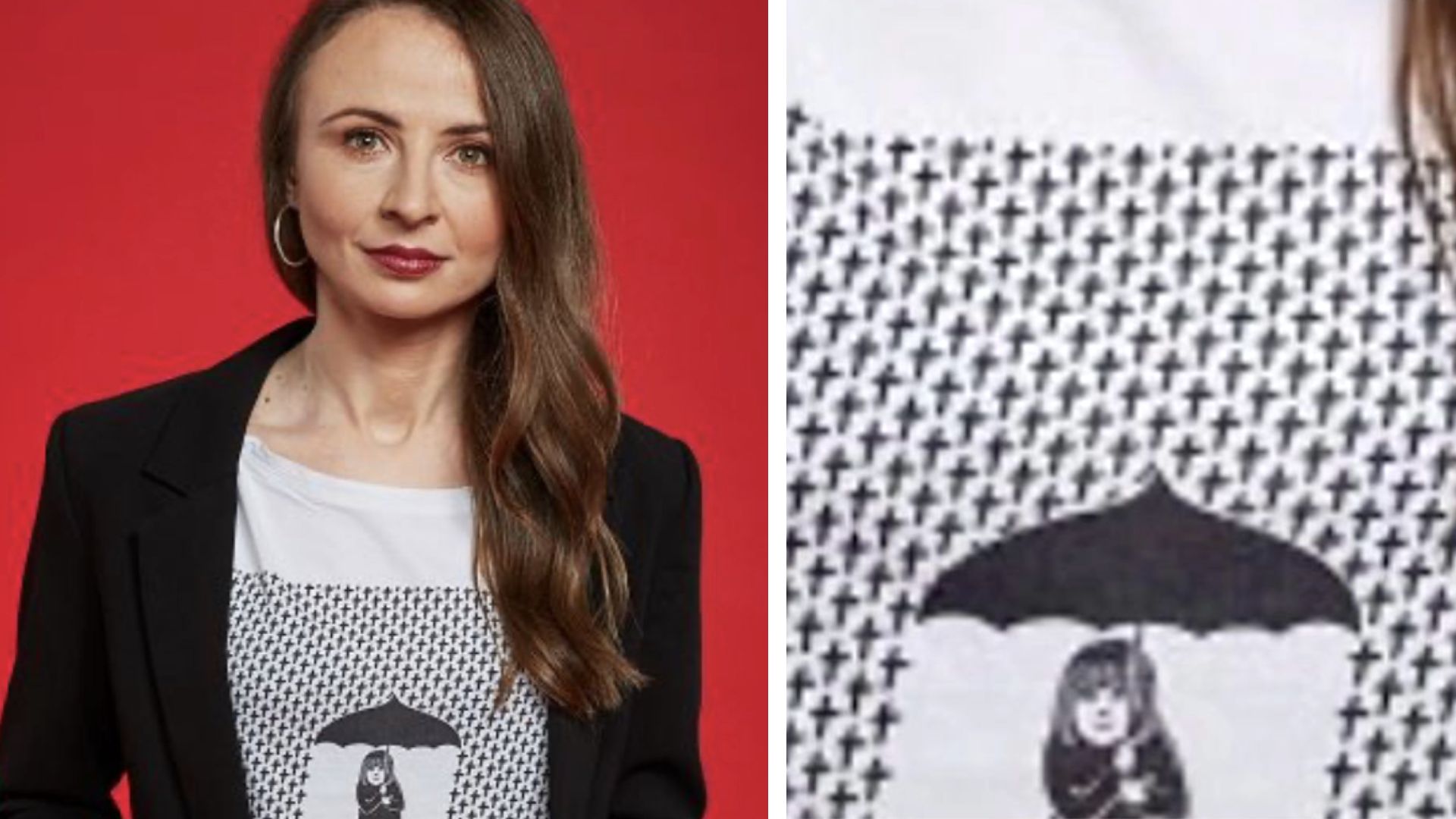Poland’s new family minister is under fire for a t-shirt that features a graphic of a woman shielding herself from Christian crucifixes with an umbrella, with the photo fueling fears of anti-Christian sentiment in the new ruling left-liberal government.
Agnieszka Dziemianowicz-Bąk, the new minister of family, labor, and social policy in the Polish government led by Donald Tusk, wore the controversial t-shirt during a photo shoot in the past. The image, resurfacing on social media, led journalist Sławomir Jastrzębowski to highlight the hypocrisy by suggesting that if the crosses were replaced with symbols like the Star of David or a crescent moon, the minister would have been promptly dismissed.
His comments reflect concerns about double standards in the treatment of religious symbols.
Przemysław Czarnek, a former head of the Ministry of Education, echoed these sentiments, questioning Dziemianowicz-Bąk’s suitability as a family minister and claiming her t-shirt was evidence of Christianophobia. He also speculated on the public reaction if similar apparel featured Jewish or Muslim symbols instead.
In a 2020 interview with Wysokie Obcasy, a supplement to the left-liberal newspaper Gazeta Wyborcza, Dziemianowicz-Bąk, then a Leftist MP, stated she is not anti-Christian but supports the secularism of the state. She emphasized her fight is not against the Catholic Church but against pathologies within it, including addressing the Church’s role in pedophilia crimes. She said the responsibility of the state is to protect its citizens, including holding accountable those who harm them, such as priests.
Dziemianowicz-Bąk has also criticized the state for allowing the Catholic Church to become significantly involved in the lives of citizens, asserting that government authorities have encouraged this over the years.
Her stance highlights a broader debate in Poland about the role of the Church in public life and the state’s relationship with religious institutions.





